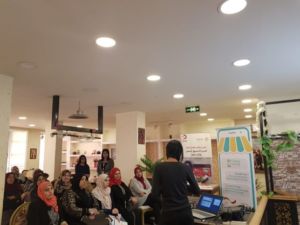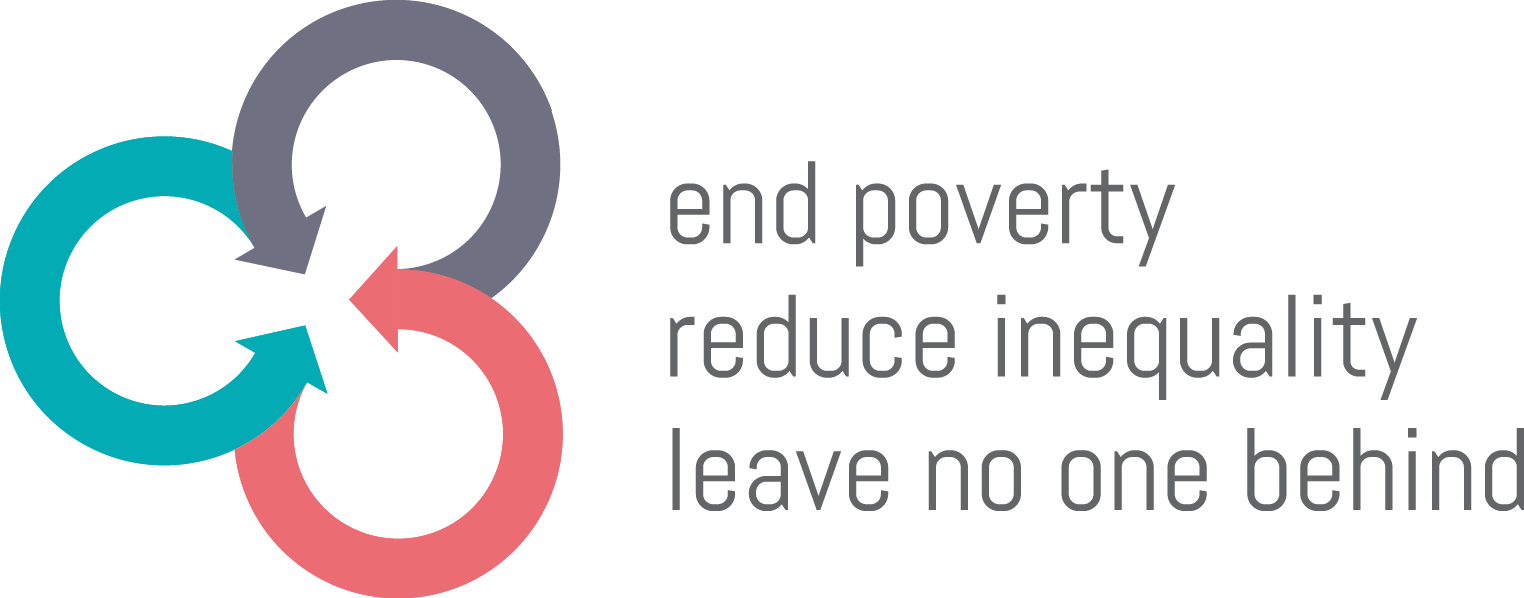On International Women’s Day, we would like to highlight a Project tackling the Gender Gap in Financial Inclusion in Jordan

Leave No One Behind: Reducing the Gender Gap in Financial Inclusion in Jordan
Around the globe, women are often left behind. This can take form in many different ways, such as deprived access to education, health services, and employment opportunities. In the context of financial inclusion, inequality is reflected in the persistent gender gap in access to formal financial services.
With a staggering 30 percent, Jordan is experiencing one of the highest gender gaps in the world –four times the global average of 7 percent. Even more alarmingly, this gap has been growing over the last few years (up from 18 percent in 2014). At the same time, mobile phone penetration in this upper middle-income country is nearly universal.
A winner of the Inequality Challenge Fund
Chosen as one of the winners of the Inequality Challenge – a fund by the BMZ to tackle inequality and Leave No One Behind (LNOB) – the project “Cl♀sing the Gap: Women Empowerment through Digital Financial Services in Jordan” was launched. Leveraging the wide penetration of mobile phones in the country, the project aimed to develop a network of women mobile money agents. Selected women businesses would be trained as agents, and thus be empowered to help other women gain access to financial services.
Albeit the implementation period of one-year was short, the project managed to yield some valuable insights and lessons learned.
The chicken and the egg problem: Supply-side innovations are dependent on market readiness and demand
The digital financial services (DFS) ecosystem in Jordan is still in its early days, with general awareness and uptake of mobile wallets being low (penetration among adults is just around 11%). Few people actively use a mobile wallet, and use cases are limited. In addition, Jordan is a largely cash-driven society.
Considering this nascent stage of DFS, commissions an agent can currently earn are low, weakening the value proposition for taking on this novel role. Although an extensive agent network is key for driving DFS, it proved difficult to establish agents – let alone women agents – when the general population had not yet heard of the product and services they offered.
The power of information: Financial literacy will encourage uptake and usage of DFS
Recognizing these limitations, the project prioritized awareness-building and educational measures for women. A robust financial literacy program highlighting the benefits and use cases of DFS, and the important role of mobile money agents in accessing these services, was developed. In line with its “from women for women” approach, 40 women educators were trained to implement these half-day, interactive courses (so-called “kitchen meetings”).
The peer-to-peer learnings proved highly effective in increasing trust and understanding of financial services. A total of 116 sessions were conducted, reaching 1,090 individuals. On average, participants showed a knowledge increase of 7.6 points (on a scale of 10). For wider reach and sustainability, the project developed a corresponding e-learning course, with a total of 6,839 learners at the time of writing.
With these interventions, the project managed to build an informed user base for digital financial services – one step closer to bringing more women into the formal financial system.
Reducing gender inequality beyond financial inclusion
One major challenge the project encountered was the structural inequality between women and men businesses in Jordan, which inevitably leaves women behind.
Under current regulations, only businesses with a commercial license can sign an agent contract. In Jordan, many women businesses operate informally, for example, as home-based businesses in the artisanry or food sectors. Although some deliberately choose not to formalize, countless others are unable to due to mobility-, resource- or cultural constraints. Limited cash flow, low transaction volumes, and inability to set cash aside in an agent wallet are further roadblocks hindering women businesses from becoming successful agents.
While the lack of awareness and trust could be addressed with the aforementioned financial literacy efforts, the unlevel playing field between women- and men-owned businesses reveals deeper gender inequalities that deserve to be addressed on a larger stage.
Nonetheless, the enthusiasm and motivation of women to learn about and adopt innovative financial solutions is a stark reminder of giving women an active role in closing the gender gap with their own hands.
Author: Byoung-Hwa Hwang
Factsheet: Closing the Gap: Women Empowerment through Digital Financial Services in Jordan (PDF)
